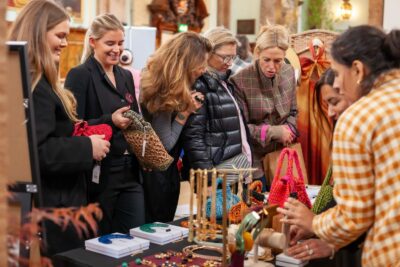The fashion industry has long been known for its negative impact on the environment, with unethical production practices, unsustainable materials, and excessive waste. However, a new movement has been emerging over the past decade, with a growing number of sustainable fashion brands leading the change towards ethical and sustainable fashion practices. These brands are not only changing the way we think about fashion but also inspiring a new generation of conscious consumers who value sustainability and ethics in their purchasing decisions.
Sustainable fashion brands are defined by their commitment to producing clothing in a way that is environmentally and socially responsible. They use sustainable materials such as organic cotton, recycled fabrics, and innovative materials like Tencel or Piñatex, and prioritize ethical production practices such as fair labour standards, safe working conditions, and transparency in their supply chains. These brands also often have a mission beyond just creating clothing, such as supporting social or environmental causes.
One such brand leading the sustainable fashion movement is Pangaia , Pangaia is a UK-based brand that has been making waves in the sustainable fashion industry. They use innovative materials such as recycled plastic bottles, seaweed fiber, and organic cotton to create clothing that is both stylish and sustainable. Pangaia’s mission is to create clothing that is environmentally conscious, and their sustainable initiatives include using sustainable packaging and carbon offsetting.
Another brand that is doing great things for sustainability is Tala, Tala is a UK-based athleisure brand that has been making waves for its commitment to sustainability and inclusivity. Tala uses sustainable materials like recycled nylon and bamboo, and they prioritize ethical production practices such as fair labor standards and transparency in their supply chain. Tala is also a carbon-negative company, meaning they offset more carbon emissions than they produce
Stella McCartney is a luxury fashion brand that has been leading the change towards sustainable fashion practices for years. They use sustainable materials like organic cotton, recycled polyester, and vegan leather, and prioritize ethical production practices such as ensuring their supply chain is free from child labor and forced labor. They are also a cruelty-free brand, meaning they do not use any animal products in their clothing or accessories.
By supporting sustainable fashion brands, we can make a statement that fashion doesn’t have to come at the expense of our planet and its people. These UK-based brands are leading the way towards a more sustainable and ethical future, inspiring us to make conscious choices and embrace a new era of fashion that is both stylish and sustainable.
Aesop, a skincare brand focusing their efforts to be embrace sustainability and ethics in the beauty industry. They use sustainable ingredients like plant-based extracts, and they prioritize ethical sourcing and fair trade practices. Aesop has also implemented sustainable initiatives such as using recycled materials for their packaging and reducing their carbon footprint.
In addition to these established brands, there are also many up-and-coming sustainable fashion brands that are making a big impact in the industry. For example, Reformation is a brand that has gained a lot of popularity in recent years for its sustainable and trendy clothing. Reformation uses sustainable materials like Tencel and recycled fabrics, and has implemented a number of sustainability initiatives, such as using renewable energy in their factories and reducing waste through their packaging.
Allbirds is another brand that has been making waves in the sustainable fashion industry. They use innovative materials like eucalyptus tree fiber and merino wool, and have implemented sustainability initiatives such as using recycled materials for their packaging and investing in carbon offset programs.
These sustainable fashion brands are not only leading the movement towards ethical and sustainable fashion practices but are also challenging the traditional fashion industry to do better. By prioritizing sustainability and ethics in their production processes and materials, they are demonstrating that fashion doesn’t have to come at the cost of the environment or human rights. They are also inspiring a new generation of conscious consumers who want to make a positive impact through their purchasing decisions.
UK has a growing number of sustainable fashion brands that are leading the charge towards sustainable and ethical fashion practices. These brands are using innovative materials, prioritizing ethical production practices, and supporting sustainability initiatives to create clothing that is both stylish and sustainable. By choosing to support these brands, consumers can make a positive impact on the environment and human rights, and help shape a more sustainable future for the fashion industry
In conclusion, the rise of sustainable fashion brands is a positive development for the fashion industry and for the planet. These brands are leading the change.




